 W
WThe history of the Jews in France deals with Jews and Jewish communities in France since at least the early Middle Ages. In the Middle Ages, France was a center of Jewish learning but over time persecution increased, including multiple expulsions and returns. During the French Revolution in the late 18th century, France on the other hand was the first country in Europe to emancipate its Jewish population. Antisemitism still occurred in cycles, reaching a high level in the 1890s, as shown during the Dreyfus affair, and in the 1940s, under Nazi German occupation and the Vichy regime.
 W
WAlbi is a commune in southern France. It is the prefecture of the Tarn department, on the river Tarn, 85 km northeast of Toulouse. Its inhabitants are called Albigensians. It is the seat of the Archbishop of Albi. The episcopal city, around the Cathedral Sainte-Cécile, was added to the UNESCO list of World Heritage Sites in 2010.
 W
WThe Alliance israélite universelle is a Paris-based international Jewish organization founded in 1860 by the French statesman Adolphe Crémieux to safeguard the human rights of Jews around the world. The organization promotes the ideals of Jewish self-defense and self-sufficiency through education and professional development. It is noted for establishing French-language schools for Jewish children throughout the Mediterranean, Iran and the Ottoman Empire in the 19th and early 20th century.
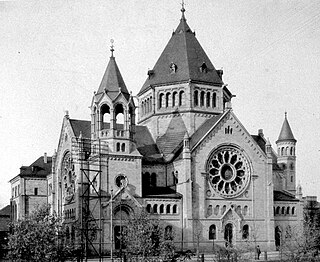 W
WThe history of the Jews in Alsace is one of the oldest in Europe. It was first attested to in 1165 by Benjamin of Tudela, who wrote about a "large number of learned men" in "Astransbourg"; and it is assumed that it dates back to around the year 1000. Although Jewish life in Alsace was often disrupted by outbreaks of pogroms, at least during the Middle Ages, and reined in by harsh restrictions on business and movement, it has had a continuous existence ever since it was first recorded. At its peak, in 1870, the Jewish community of Alsace numbered 35,000 people.
 W
WAntoine d'Aquin (1629–1696) was a French physician.
 W
WArles was a major Jewish center between the Roman times and the Renaissance. Due to its location between Spain and the rest of Europe, with its proximity to the Mediterranean coast, Arles became a comfortable and sometimes beneficial city for the many Jews who lived in it. During the Middle Ages, many notable Jews were active in Arles, which functioned as a Jewish philosophy and Arabic-Hebrew-Latin translation center, as it was one of the town known for its Hachmei Provence. No Jewish community was evident in Arles ever since, even though some evidences of former Jewish life can be seen around town and in the local museum. The Jewish community ceased to prosper towards the end of the 15th century, until they were expelled in around the 1490s after which they did not return. Jews were to be found in Arles in the 1960s, though no community was ever evident again.
 W
WThe Belfort Synagogue is a synagogue built in the Byzantine Revival architecture during the Second French Empire in the city center of Belfort, France.
 W
WThe Code Noir was a decree originally passed by France's King Louis XIV in 1685. The Code Noir defined the conditions of slavery in the French colonial empire, restricted the activities of free Black people, made Roman Catholicism compulsory, and ordered all Jews out of France's colonies.
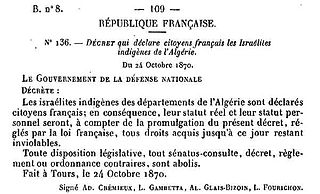 W
WThe Crémieux Decree was a law that granted French citizenship to the majority of the Jewish population in French Algeria, signed by the Government of National Defense on 24 October 1870 during the Franco-Prussian War. It was named after French-Jewish lawyer and Minister of Justice Adolphe Crémieux, who had founded the Alliance Israélite Universelle a decade earlier.
 W
WAlfred Dreyfus was a French artillery officer of Jewish ancestry whose trial and conviction in 1894 on charges of treason became one of the most controversial and polarizing political dramas in modern French history. The incident has gone down in history as the Dreyfus Affair, the reverberations from which were felt throughout Europe. It ultimately ended with Dreyfus's complete exoneration.
 W
WMathieu Dreyfus (1857–1930) was an Alsatian Jewish industrialist and the older brother of Alfred Dreyfus, a French military officer falsely convicted of treason in what became known as the Dreyfus affair. Mathieu was one of his brother's most loyal supporters throughout the affair.
 W
WThe Ephrussi family is a Russian Jewish banking and oil dynasty. The family's bank and properties were seized by the Nazi authorities after the 1938 "Anschluss", the annexation of Austria by Nazi Germany.
 W
WThe Military Administration in France was an interim occupation authority established by Nazi Germany during World War II to administer the occupied zone in areas of northern and western France. This so-called zone occupée was renamed zone nord in November 1942, when the previously unoccupied zone in the south known as zone libre was also occupied and renamed zone sud.
 W
WThe Government of Vichy France was the collaborationist ruling regime or government in Nazi-occupied France during the Second World War. Of contested legitimacy, it was headquartered in the town of Vichy in occupied France, but it initially took shape in Paris under Maréchal Philippe Petain as the successor to the French Third Republic in June 1940. Pétain spent four years in Vichy and after the Allied invasion of France, fled into exile to Germany in September 1944 with the rest of the French cabinet. It operated as a government-in-exile until April 1945, when the Sigmaringen enclave was taken by Free French forces. Pétain was brought back to France, by then under control of the Provisional French Republic, and put on trial for treason.
 W
WThe green ticket roundup is the name given to the summons and arrest of foreign Jews in France by French police on 14 May 1941.
 W
WCharles Huntziger was a French Army general during World War I and World War II. He was born at Lesneven (Finistère) of a family of German descent. He graduated from Saint-Cyr in 1900 and joined the colonial infantry. During World War I, he served in the Middle Eastern theatre. He was chief of staff of operations of the Allied Expeditionary Force. In 1918, he participated in the development of General Louis Franchet d'Espèrey's Vardar Offensive against German and Bulgarian forces which would lead to Allied victory and the signing of the Armistice of Mudros in October 1918.
 W
WOn March 17, 1808, Napoleon I made three decrees in a failed attempt to promote the equality of Jews and integrate them into French society, building on the Jewish Emancipation of 1790–1791. The Infamous Decree, the third of the three decrees, had adverse effects. Although its aim was to grant equal citizenship, it restricted Jewish money lending, annulled all debts owed to Jews by non-Jewish debtors, and limited the residency of new Jewish peoples in France by restricting their business activities, while allowing work in agriculture and craftsmanship. The combination of these decrees severely weakened the financial position of once dominant rural French money lending Jews.
 W
WIzieu is a commune in the Ain department in eastern France.
 W
WLe Marais is a historic district in Paris, France. Long the aristocratic district of Paris, it hosts many outstanding buildings of historic and architectural importance. It spreads across parts of the 3rd and 4th arrondissements in Paris. Once shabby, the district has been rehabilitated and now sports trendy shopping and restaurants in streets such as Rue des Francs-Bourgeois and Rue des Rosiers.
 W
WRevolutionary France enacted laws that first emancipated Jews in France, establishing them as equal citizens to other Frenchmen. In countries that Napoleon Bonaparte's ensuing First French Empire conquered during the Napoleonic Wars, he emancipated the Jews and introduced other ideas of freedom from the French Revolution. For instance, he overrode old laws restricting Jews to reside in ghettos, as well as lifting laws that limited Jews' rights to property, worship, and certain occupations.
 W
WThe Pereire brothers were prominent 19th-century financiers in Paris, France, who were rivals of the Rothschilds. Like the Rothschilds, they were Jews, but the Pereire brothers were Sephardi Jews of Portuguese origin.
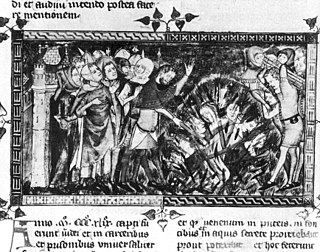 W
WThe Black Death persecutions and massacres were a series of violent attacks on Jewish communities falsely blamed for outbreaks of the Black Death in Europe from 1348 to 1351.
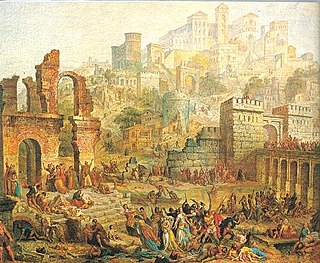 W
WThe Rhineland massacres, also known as the persecutions of 1096 or Gzerot Tatnó, were a series of mass murders of Jews perpetrated by mobs of German Christians of the People's Crusade in the year 1096, or 4856 according to the Jewish calendar. The massacre is seen as the first in a sequence of antisemitic events in Europe which culminated in the Holocaust.
 W
WRothschild & Co is a multinational investment bank and financial services company, and the flagship of the Rothschild banking group controlled by the French and British branches of the Rothschild family.
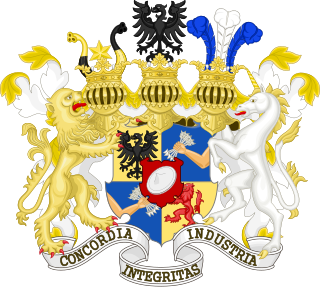 W
WThe Rothschild banking family of France is a French banking dynasty founded in 1812 in Paris by James Mayer de Rothschild (1792–1868). James was sent there from his home in Frankfurt, Germany, by his father, Mayer Amschel Rothschild (1744–1812). Wanting his sons to succeed on their own and to expand the family business across Europe, Mayer Amschel Rothschild had his eldest son remain in Frankfurt, while his four other sons were sent to different European cities to establish a financial institution to invest in business and provide banking services. Endogamy within the family was an essential part of the Rothschild strategy in order to ensure control of their wealth remained in family hands.
 W
WThe Takkanot Shum, or Enactments of SHU"M were a set of decrees formulated and agreed upon over a period of decades by the leaders of three of the central cities of Medieval Rhineland Jewry: Speyer, Worms, and Mainz. The initials of the Hebrew names for these cities, Shpira, Vermayza, and Magentza form the initials SHUM. While these regulations were intended to address the problems of that time, they had an effect on European Jewry that lasted centuries.
 W
WThe Union générale des israélites de France was an antisemitic body created by Xavier Vallat under the Vichy regime after the Fall of France in World War II. UGIF was created by decree on 29 November 1941 following a German request, for the express purpose of enabling the discovery and classification of Jews in France and isolating them both morally and materially from the rest of the French population. The mission of the UGIF was to represent Jews before the public authorities, particularly in matters of assistance, welfare and social reintegration. All Jews who were living in France were required to join the UGIF, because the other Jewish associations had been dissolved and their assets had been donated to the UGIF. The administrators of this body mostly belonged to the French-Jewish bourgeoisie, administrators who were appointed by the Commissariat-General for Jewish Affairs (CGQJ), the structure which had been initiated by the Vichy government at the instigation of the Nazis to reinforce antisemitic persecution. In order to finance its activities, the UGIF drew on a solidarity fund whose income was generated from the confiscation of Jewish property, from contributions from its members and funds from the CGQJ.
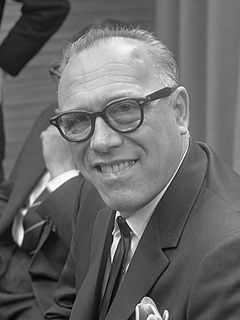 W
WJohan Hendrik Weidner was a highly decorated Dutch hero of World War II.
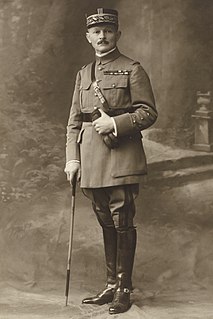 W
WMaxime Weygand was a French military commander in World War I and World War II.
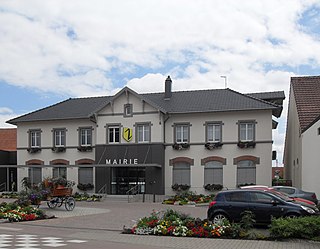 W
WWolfisheim is a commune in the Bas-Rhin department in Grand Est in north-eastern France.
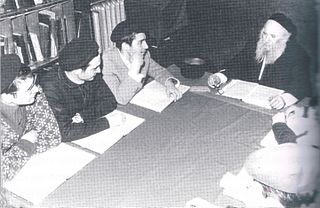 W
WThe Yeshiva of Aix-les-Bains is one of the principal Talmudic academies in France. It is officially named Yeshivas Chachmei Tsorfat after the medieval rabbinic authorities who lived in France, including Rashi and many Baalei Tosafot. Since 1945, the Yeshiva has been located in the spa town of Aix-les-Bains, and is directed currently by Rabbi Yitzhak Weil.